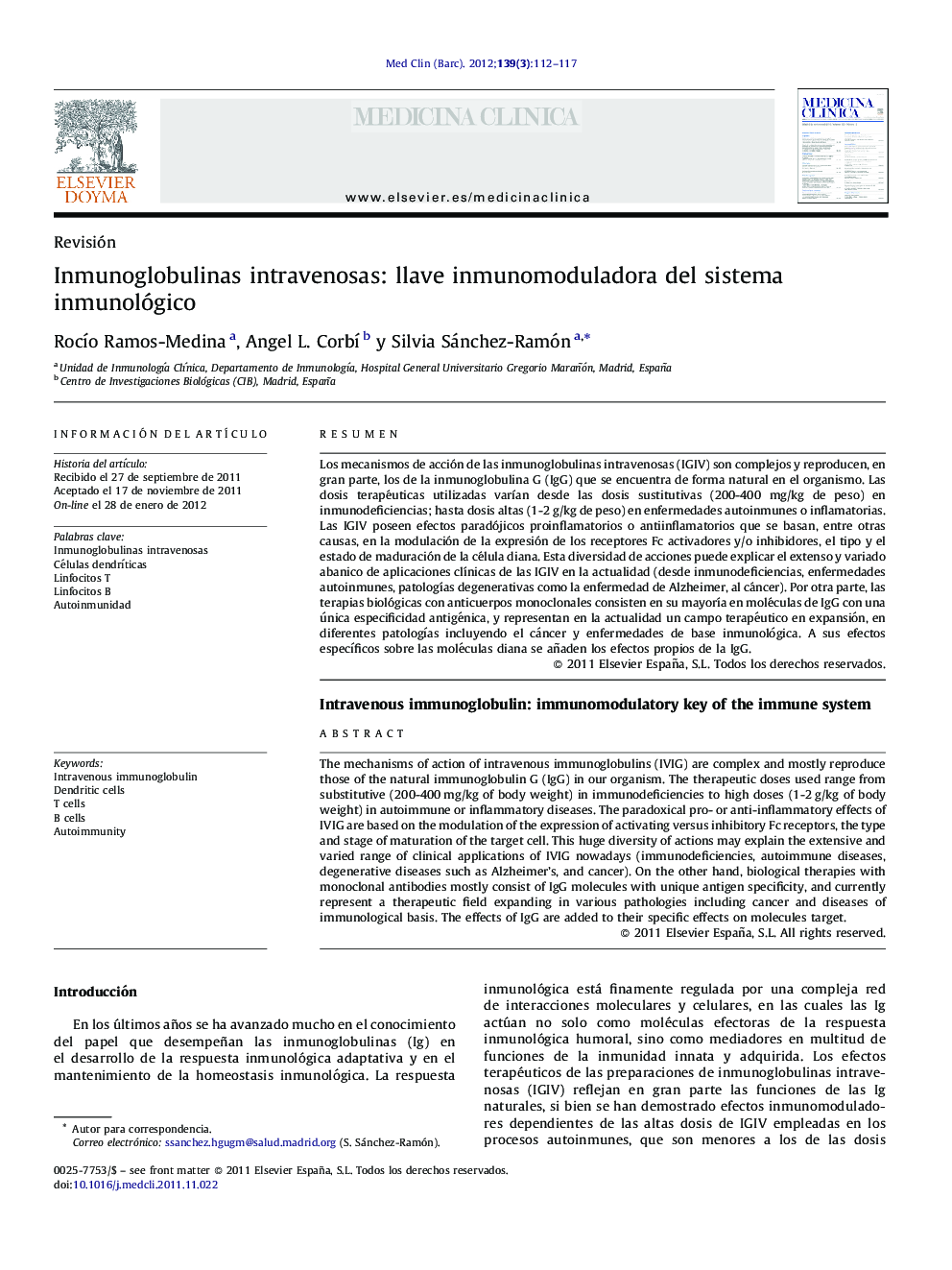| Article ID | Journal | Published Year | Pages | File Type |
|---|---|---|---|---|
| 3799997 | Medicina Clínica | 2012 | 6 Pages |
Abstract
The mechanisms of action of intravenous immunoglobulins (IVIG) are complex and mostly reproduce those of the natural immunoglobulin G (IgG) in our organism. The therapeutic doses used range from substitutive (200-400Â mg/kg of body weight) in immunodeficiencies to high doses (1-2Â g/kg of body weight) in autoimmune or inflammatory diseases. The paradoxical pro- or anti-inflammatory effects of IVIG are based on the modulation of the expression of activating versus inhibitory Fc receptors, the type and stage of maturation of the target cell. This huge diversity of actions may explain the extensive and varied range of clinical applications of IVIG nowadays (immunodeficiencies, autoimmune diseases, degenerative diseases such as Alzheimer's, and cancer). On the other hand, biological therapies with monoclonal antibodies mostly consist of IgG molecules with unique antigen specificity, and currently represent a therapeutic field expanding in various pathologies including cancer and diseases of immunological basis. The effects of IgG are added to their specific effects on molecules target.
Keywords
Related Topics
Health Sciences
Medicine and Dentistry
Medicine and Dentistry (General)
Authors
RocÃo Ramos-Medina, Angel L. CorbÃ, Silvia Sánchez-Ramón,
